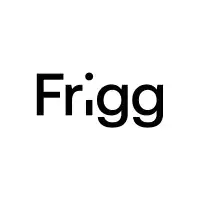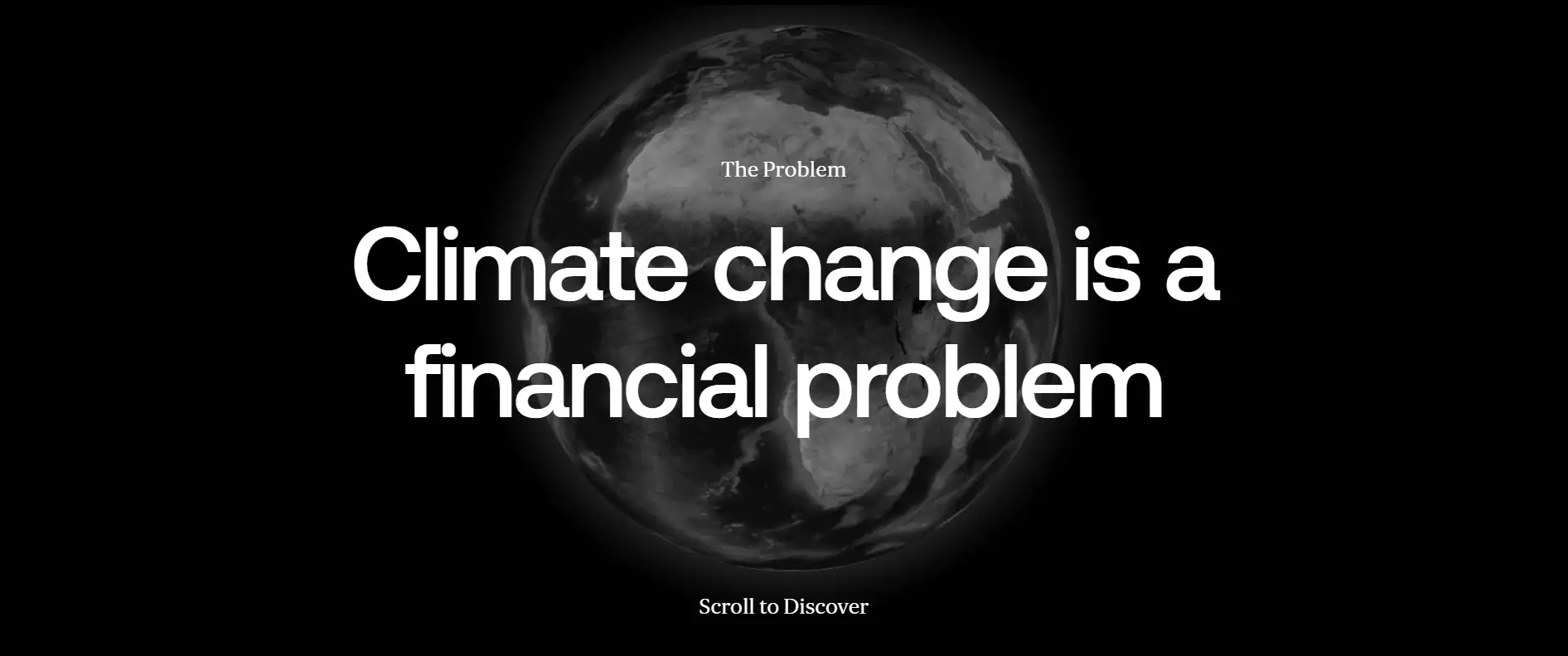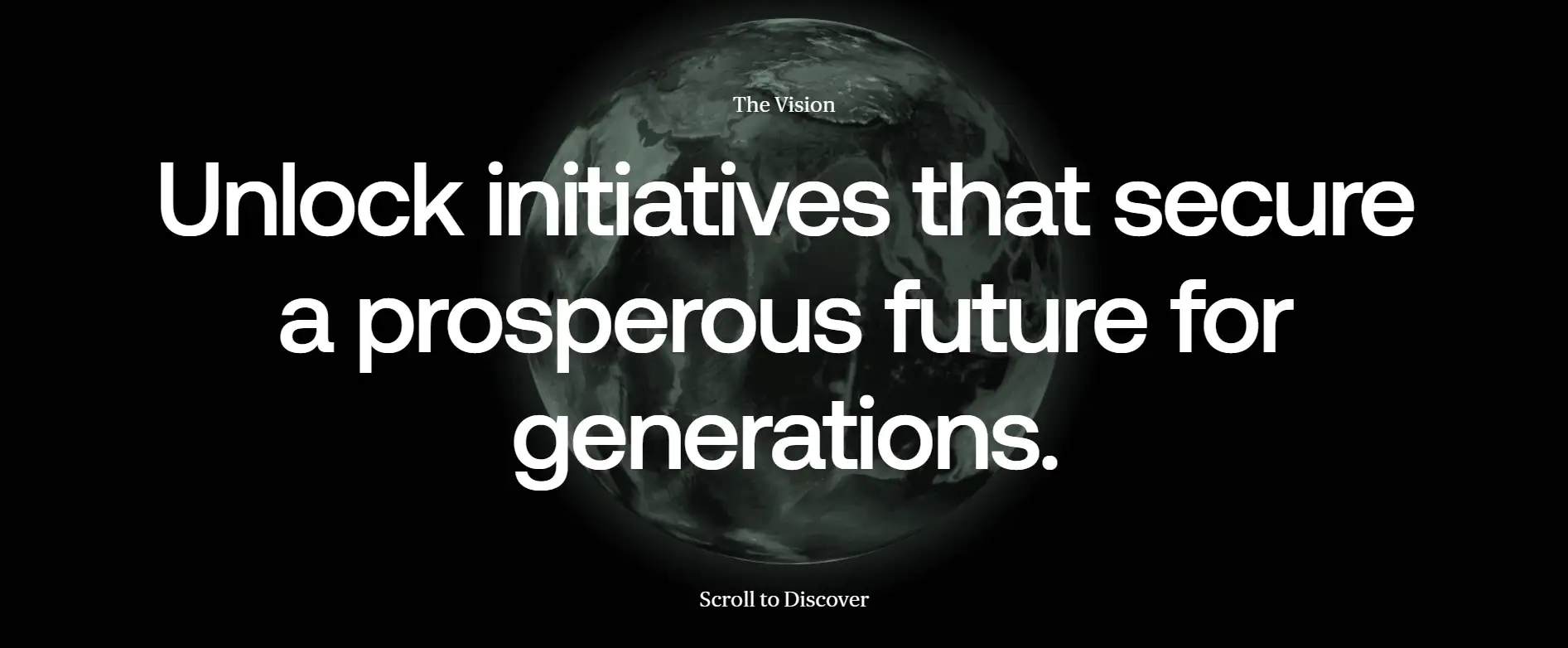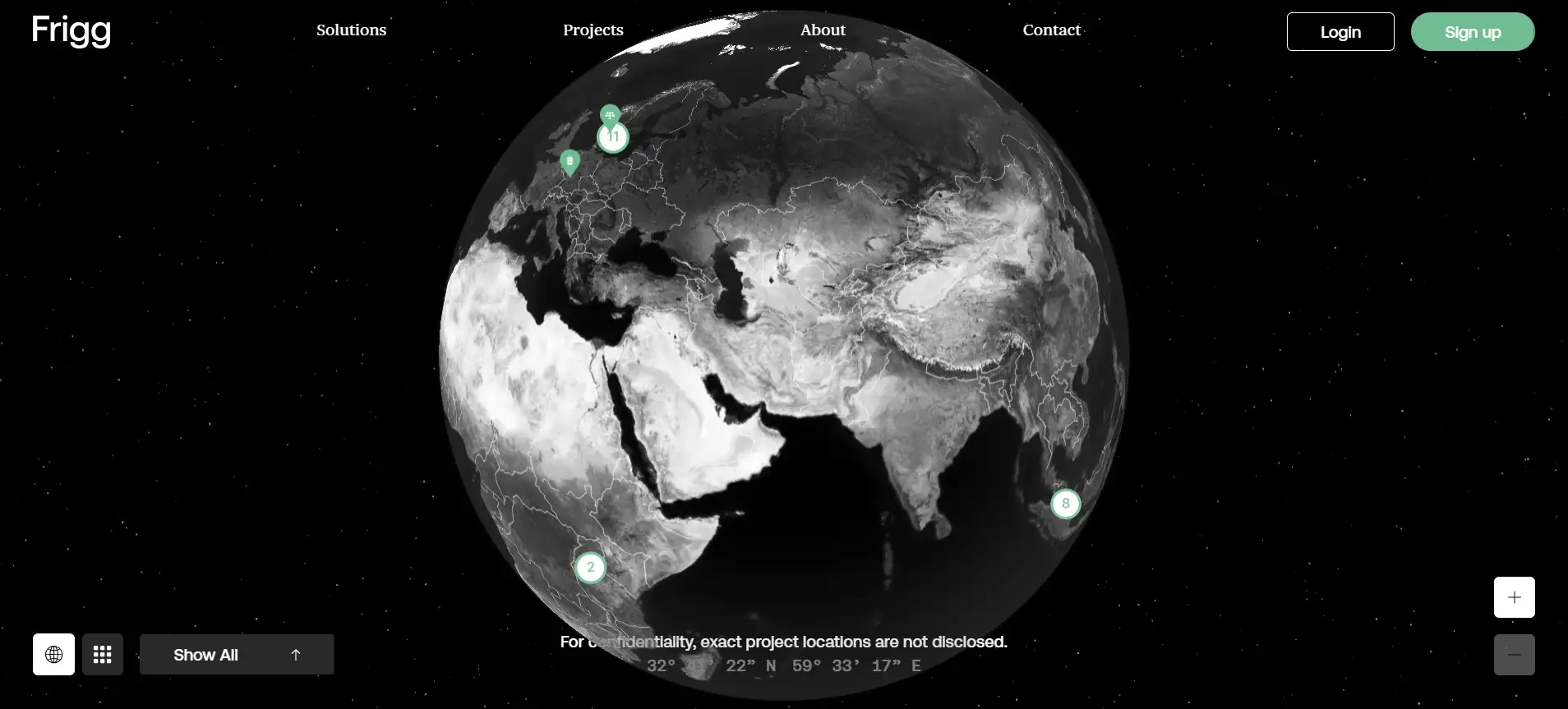About Frigg
Frigg is a cutting-edge digital platform that enables decentralized financing for climate-focused infrastructure projects. Designed as a one-stop-shop for both project developers and private market investors, Frigg combines blockchain technology, IoT, and AI to streamline how renewable energy projects are funded, tracked, and scaled. By leveraging digital securities and a fully tokenized approach, Frigg helps eliminate inefficiencies in traditional infrastructure finance and unlocks access to capital for overlooked renewable energy projects in the 1–50 MW range.
The mission of Frigg is to make green infrastructure investment accessible, manageable, and attractive. The platform supports both developers and investors by offering tools to accelerate project funding, simplify due diligence, and enable transparent post-investment monitoring. With a growing portfolio of solar, hydro, battery storage, biomass, and waste-to-energy projects across multiple continents, Frigg is playing a transformative role in advancing the sustainability transition while generating meaningful returns for impact-driven investors.
Frigg is revolutionizing the financing of small and medium-sized renewable energy projects by creating a modern marketplace tailored for an underserved segment—projects ranging from 1 MW to 50 MW. These projects are often overlooked by institutional investors and traditional banks due to their smaller scale and geographic dispersion. Through Frigg, both developers and investors gain access to a seamless digital infrastructure that covers the full lifecycle of project financing—from origination and due diligence to structuring, securitization, capital deployment, and performance monitoring.
The platform's value lies in its ability to standardize and digitize what is typically a fragmented and inefficient financing process. Frigg’s ecosystem includes renewable energy projects across solar PV, hydroelectric, battery energy storage systems (BESS), biomass, and waste-to-energy technologies. Current and past project locations include Sweden, Norway, Singapore, Kenya, Burundi, Poland, and Germany, demonstrating a global impact. Each listing on the platform provides detailed project specifications such as country, technology type, capacity, financial structure (loan or equity), and development status. For example, projects like "Krøderen" in Norway (30 MW solar PV) and "Lidhult BESS" in Sweden (10 MW battery storage) showcase the diversity and scalability of deals accessible through the platform.
What sets Frigg apart is its approach to financial transparency, risk management, and asset tokenization. By integrating blockchain technology, it creates digital securities that represent real-world assets, giving investors fractionalized ownership and access to previously illiquid green infrastructure. Investors can monitor their portfolios and expected yields through an intuitive dashboard that emphasizes trust, regulatory compliance, and environmental impact.
In the broader ecosystem, Frigg's most comparable platforms include Energy Web, Power Ledger, and Sun Exchange. However, Frigg stands out due to its specialization in small to mid-sized project finance, its deep integration with institutional-grade underwriting and securitization, and its flexible marketplace that serves both equity and debt financing structures. The platform also supports secondary markets, allowing for liquidity of digital securities post-issuance.
Frigg provides numerous benefits and features that make it a standout platform in the climate infrastructure financing space:
- Decentralized Infrastructure Finance: Frigg enables tokenized and traceable investments in renewable energy projects, reducing friction in capital deployment.
- Global Green Project Marketplace: The platform features verified solar, hydro, biomass, BESS, and waste-to-energy projects from regions like Europe, Africa, and Southeast Asia.
- Secure Digital Securities: Each investment is represented through blockchain-based digital assets, allowing for fractional ownership and greater liquidity.
- Full Transparency: Investors benefit from real-time project data, ongoing monitoring, and risk management tools backed by standardized frameworks.
- Dual-Sided Utility: Developers gain access to structured finance tools and compliance support, while investors get performance metrics and tailored ESG insights.
- Low Minimum Investment: The platform opens the door to private market infrastructure investing with minimal capital thresholds.
- End-to-End Digital Workflow: From due diligence to post-investment monitoring, all functions are digitized within a user-friendly interface.
Getting started with Frigg is easy and designed for both developers and investors looking to make a meaningful climate impact:
- Visit the Platform: Go to the official website at frigg.eco and click “Sign Up” on the homepage.
- Create an Account: Fill out a brief form with your name, company name, and email address. You’ll receive onboarding instructions via email.
- Choose Your Role: Decide whether you are a developer looking to raise funding or an investor seeking vetted green projects.
- Browse Projects: Explore the live and upcoming deal flow, including capacity, location, technology type, and investment status.
- Initiate Investment or Funding: Investors can initiate contributions directly from the dashboard, while developers can upload documentation and receive support for compliance and structuring.
- Track Your Progress: After onboarding, use your dashboard to monitor your investment performance or project milestones in real time.
- Stay Informed: Subscribe to the Frigg newsletter and follow them on LinkedIn and Twitter for updates on new project listings and features.
Frigg FAQ
Yes, individual investors can participate in energy storage projects through Frigg, including listings like Lidhult BESS (10 MW) and Sjøbo (16 MW). By tokenizing ownership, Frigg makes infrastructure investment accessible to individuals through fractionalized digital securities, enabling them to support grid stability and renewable integration while earning returns from operational revenues.
Frigg uses blockchain-based smart contracts and a digitized project lifecycle to ensure that every investment is auditable from origin to post-financing. Projects are scored with input from external evaluators, and real-time data such as energy production, environmental metrics, and financial flows are monitored via an integrated dashboard that gives investors clear, trackable insights into their portfolio's progress.
Risk management is built into Frigg’s framework through third-party due diligence, conservative financial structuring, and robust project selection. If a project underperforms, investors are notified through the dashboard, and Frigg provides updates on operational adjustments or restructuring efforts. As these are real-world asset-backed securities, repayment may be impacted, but legal frameworks and contingencies are in place to protect investor interests.
Yes, Frigg is developing a secondary trading framework for its digital securities, allowing liquidity in an asset class that is traditionally illiquid. This secondary market will enable investors to sell their positions to other qualified users, improving capital efficiency and making green infrastructure investing more flexible and responsive to market conditions.
Frigg integrates a climate impact scoring system into every project listing by collaborating with third-party agencies and in-house data scientists. Factors include CO2 emissions reduction potential, energy displacement, and local community benefits. These metrics are displayed on the platform to help investors align with specific Environmental, Social, and Governance (ESG) criteria and track the outcomes of their investments in real time via the Frigg dashboard.
You Might Also Like












